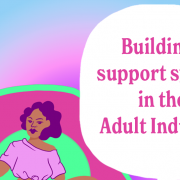Love and Mental Well-Being: Tips for Improving Your Relationships
In life, relationships and feeling good go hand in hand, influencing each other in meaningful ways. As social beings, we naturally crave connection, sparking the question: do good feelings cultivate strong relationships, or do healthy relationships ensure well-being? The answer is a little bit of both.
Relationships and Mental Health
A study from Harvard University found that having people who care about us can make our physical, emotional, and mental health more stable. So, being happy and healthy is linked to the relationships we have. Taking care of these connections is as crucial as looking after our physical health.
In a supportive environment, we feel less alone, less anxious, and less scared. Having friends and family we can count on helps us ask for help before things get too hard, making us stronger when facing challenges.
But having lots of relationships isn’t the key – it’s about having good ones. It’s normal to have some problems with friends, family, or partners now and then, but they don’t have to be perfect. What matters most is knowing we can rely on our loved ones when times get tough.
Relationship Changes
In romantic relationships, a rough patch is common, but it’s the assurance that your partner will stand by you that matters most. If things turn bad or stay difficult for a long time, even being around people might not stop feelings of loneliness and sadness.
Breakups and relationship changes can be tough on our mental health. Feeling lonely and isolated can be significant problems. This also happens when we lose a job, retire, experience grief or go through periods without daily positive connections.
Experiencing conflict in the household doesn’t only stress the grown-ups; it can also detrimentally impact the well-being and development of children. In situations where one person uses fear to control another, it can make it hard for the adults and children involved to make and keep good relationships in the future.
Equally, when we’re not feeling good mentally, it can also affect our relationships. When dealing with anxiety, depression, or other mental health issues, it can be hard to be interested in our loved ones and invest time or energy into creating connection. People experiencing poor mental health might feel embarrassed and blame themselves, making it tough to feel close to others and disrupting the balance of mutual support.
Ways that you can improve your relationships:
- To start, think about the relationships you currently have, and the sorts of relationships you would like to have. For example, you might want to make new friends, or strengthen your existing relationships.
- If you want to strengthen existing relationships, reach out to people you already know, such as co-workers, family, friends-of-friends or neighbours. Suggest that you would like to be in touch more often, and organise to have a coffee, go for a walk, or do another activity you both enjoy.
- If you are experiencing a period where you are not having daily interactions with other people, and are feeling lonely as a result, you may need to be more intentional in fostering existing relationships or making new connections.
- If you want to make new friends or social connections, joining a club or group is a great idea. Check out your local community centre to see if there are any groups you might be interested in. Another option is using an app or a forum that brings together people based on common interests.
Good relationships take time and energy. Ultimately, every one of us needs good, supportive relationships to maintain our mental health, and good mental health to sustain our relationships. Remember that building new connections and working on existing relationships often takes time, but it’s always worth it. Be patient and congratulate yourself for doing something that’s been proven to have a positive impact on your emotional and physical wellbeing.
Get support when you need it
If you are experiencing mental health issues, it might feel impossible to put time and energy into our relationships, even if it’s with a close friend or family member, and even when we know it’ll help us in the long run.
It’s okay to ask for help and it’s also okay to take a break from relationships to focus on feeling better mentally when needed. Balancing both is tricky, and getting help ensures you take care of everything.
If you need support, you can apply for subsidized therapy with Pineapple Support here.












